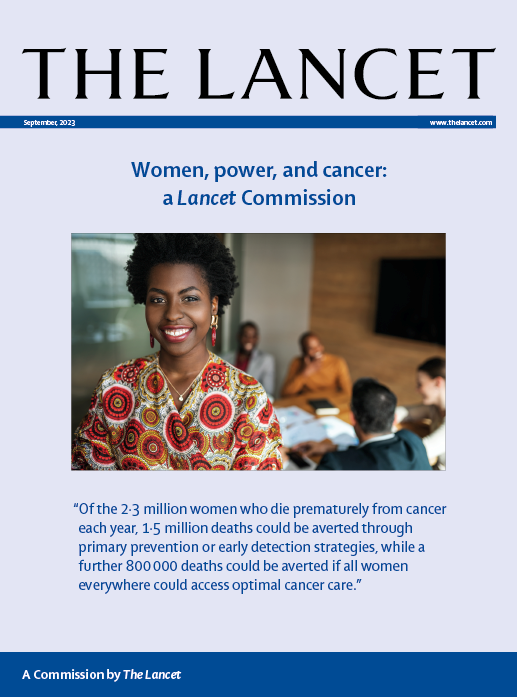Women, Power, and Cancer: A Lancet Commission
Overview
The Lancet Commission on Women, Power, and Cancer was formed in 2020 and published its report in September 2023. The Commission uses an intersectional feminist approach to address urgent questions at the intersection of social inequality, cancer risk and outcomes, and the status of women in society. Dr. Ophira Ginsburg, Senior Advisor for Clinical Research at the Center for Global Health, is a co-chair of this Commission and continues to apply its findings to the work of CGH and in the global cancer research and control community.
Impact
Women interact with cancer in multiple and complex ways, as people directly experiencing cancer, as health professionals, scientists, advocates or unpaid caregivers. The Commission found that overlapping forms of discrimination such as ageism and racism reduce women’s opportunities to avoid cancer risks and impede their ability to receive timely diagnoses and quality care. Gender inequality also hinders women’s professional advancement as leaders in cancer research, practice, and policymaking, which in turn perpetuates the lack of women-centered cancer prevention and care. The Commission published its first report in The Lancet with a global launch event supported by the NCI Center for Global Health, Our key findings and recommendations can be found here.
Along with ten specific recommendations for international organizations, national and subnational governments, researchers and funders, civil society, and the private sector, the Commission recommends that sex and gender be included in all cancer-related policies and guidelines, making these responsive to the needs and aspirations of women in all their diversities.
How to Connect
To learn more about the Commission, visit the Commission’s website or contact them directly.
Collaborators
The Commission is a global, multidisciplinary team with expertise in gender studies, human rights, law, economics, sociology, as well as cancer epidemiology, prevention, and treatment. It is supported by a range of international academic, governmental, and non-governmental partners. A full list of partners is available on the Commission website.
